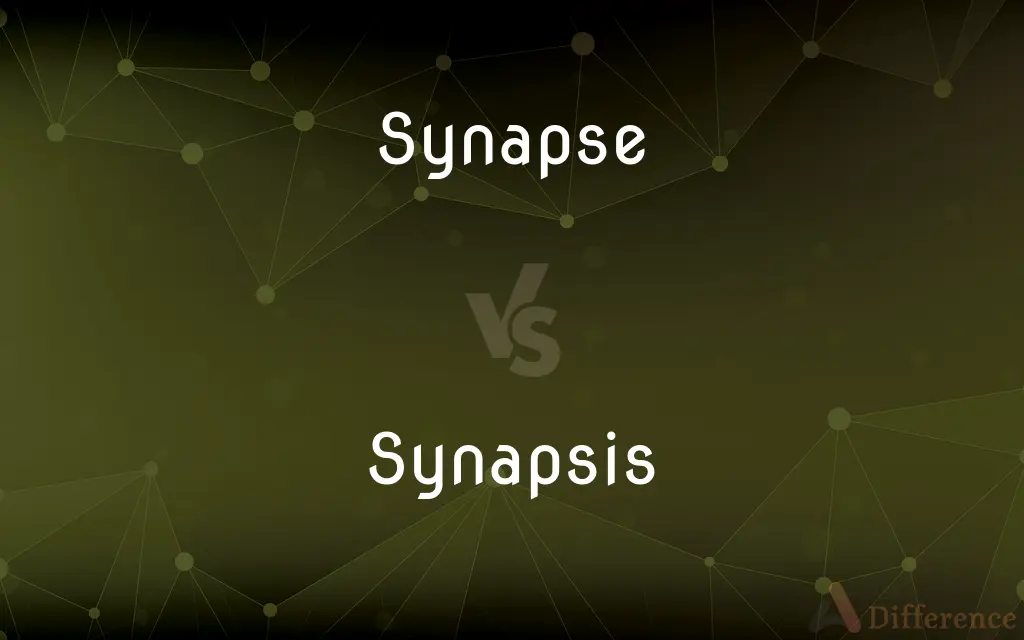Synapse vs. Synapsis — What's the Difference?

Difference Between Synapse and Synapsis
ADVERTISEMENT
Compare with Definitions
Synapse
In the nervous system, a synapse is a structure that permits a neuron (or nerve cell) to pass an electrical or chemical signal to another neuron or to the target effector cell. Synapses are essential to the transmission of nervous impulses from one neuron to another.
Synapsis
Synapsis (also called harsha) is the pairing of two chromosomes that occurs during meiosis. It allows matching-up of homologous pairs prior to their segregation, and possible chromosomal crossover between them.
Synapse
A junction between two nerve cells, consisting of a minute gap across which impulses pass by diffusion of a neurotransmitter.
Synapsis
The side-by-side association of homologous chromosomes during the first prophase of meiosis.
Synapse
The junction across which a nerve impulse passes from an axon terminal to a neuron, muscle cell, or gland cell.
ADVERTISEMENT
Synapsis
The association of homologous maternal and paternal chromosomes during the initial part of meiosis.
Synapse
To form a synapse.
Synapsis
Alternative form of synapse
Synapse
To undergo synapsis.
Synapsis
The side by side pairing of homologous maternal and paternal chromosomes at the start of meiosis
Synapse
The junction between the terminal of a neuron and either another neuron or a muscle or gland cell, over which nerve impulses pass.
Synapse
(intransitive) To form a synapse.
Synapse
(intransitive) To undergo synapsis.
Synapse
The junction between two neurons (axon-to-dendrite) or between a neuron and a muscle;
Nerve impulses cross a synapse through the action of neurotransmitters
Share Your Discovery

Previous Comparison
Pumpkin vs. Squash
Next Comparison
Bargain vs. Deal













































